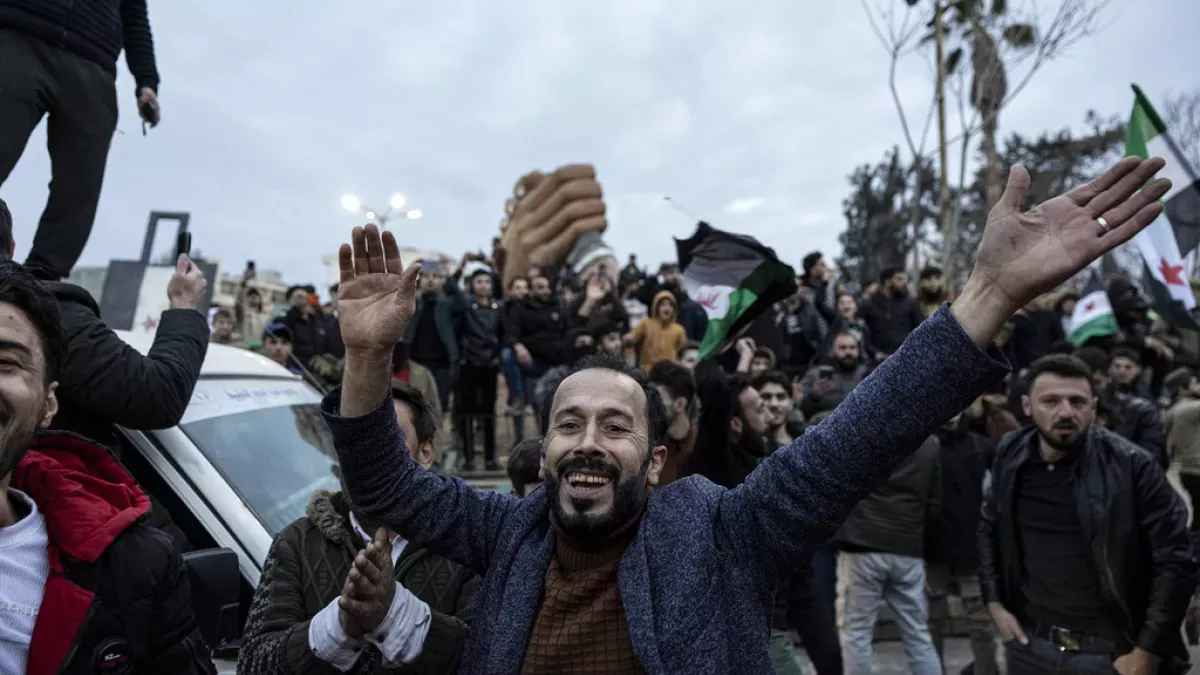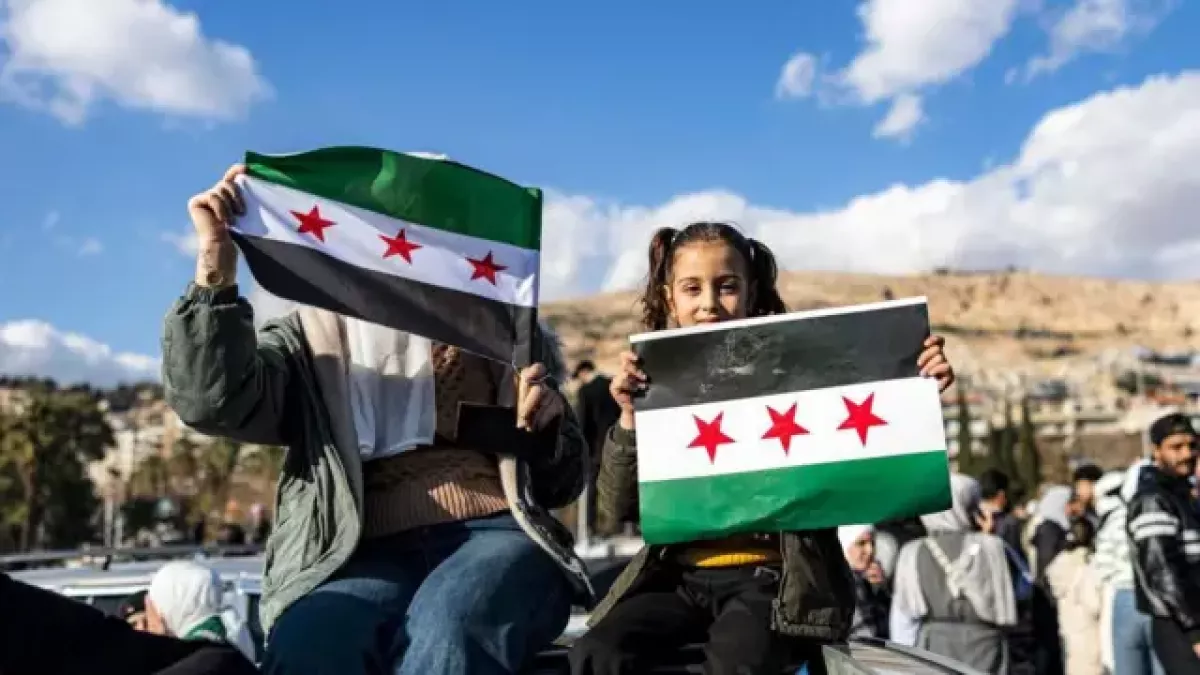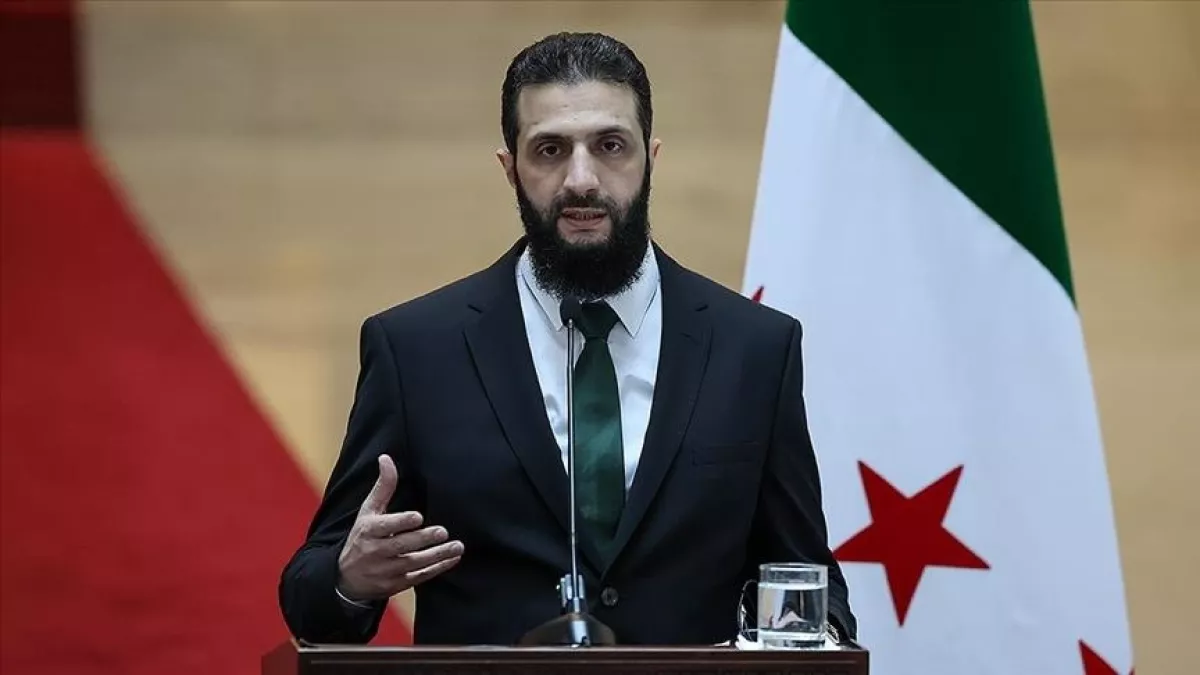After Assad: Türkiye and Saudi Arabia’s strategic dance in Syria Recalibration of regional alliances
Turkish Foreign Minister Hakan Fidan embarked on a landmark visit to Damascus, marking his first trip as a high-ranking envoy to meet with Syria's newly-formed government. Fidan's visit underscores his status not merely as Türkiye's chief diplomat but as a pivotal figure in the nation's political and strategic apparatus. Formerly the head of Türkiye's powerful National Intelligence Organization (MIT), Fidan wields great influence alongside President Erdogan.
Simultaneously, ministers from Syria's new administration undertook their inaugural foreign mission to Saudi Arabia. Interim Foreign Minister Asaad al-Shaibani heralded this visit as a historic step toward revitalizing Syrian-Saudi relations, underpinned by a shared legacy. Upon arrival in Riyadh, al-Shaibani expressed his vision via social media, stating: "Through this first visit in the history of the new Syria, we aim to open a new and remarkable page in Syrian-Saudi relations, which is in line with the long joint history of the two countries."
Accompanying him were Defence Minister Murhaf Abu Qasra and General Intelligence Service chief Anas Khattab. The delegation engaged in high-level talks with Saudi Foreign Minister Prince Faisal bin Farhan and Defence Minister Prince Khalid bin Salman, signalling the onset of strategic dialogue.
In a revealing interview with Saudi broadcaster Al Arabiya, Syria's new leader Ahmed al-Sharaa highlighted Saudi Arabia's anticipated role in shaping Syria's future. He underscored the potential for significant investment opportunities, appealing to regional neighbours to participate in Syria's reconstruction and economic revival.
The seismic shift in Syria's governance followed the overthrow of President Bashar al-Assad's pro-Iranian regime on December 8. The ascension of Syria's current leadership, aligned with the Hayat Tahrir al-Sham (HTS) group, marked a decisive break from Tehran's regional influence. Shortly thereafter, Syrian officials declared their intent to dismantle Iran's geopolitical ambitions, addressing the interests of Türkiye and Saudi Arabia — both key regional players.
The strategic importance of Türkiye and Saudi Arabia in Syria's transformation warrants closer examination.
Türkiye, alongside its ally Qatar, the small and super-rich oil principality of the Persian Gulf, has long supported the HTS group, particularly during its years of control in Syria's northwestern Idlib province bordering Türkiye. Ankara's military interventions thwarted advances by Assad's forces, Iranian-backed militias such as Hezbollah, and Russian troops, effectively preserving HTS's foothold. Turkish backing extended to arms supplies, while Qatari financing sustained the group's operations. Over four years, HTS leveraged this support to enact sweeping military reforms, consolidating its allies under a unified command structure.
The culmination of these efforts came in a swift and decisive military campaign. Between November 27 and December 8, HTS forces overran Assad's loyalist troops, toppling his regime in just 11 days.

The collapse of Syria's alignment with Iran has delivered the most crushing strategic setback to Tehran and its Axis of Resistance — a coalition that once thrived on pro-Iranian forces and militias, including Hezbollah in Lebanon, the Assad regime in Syria, and Iraqi Shiite groups. Syria, the linchpin of this alliance, has now been severed from the bloc, leaving Hezbollah isolated and fracturing the coalition's coherence.
However, Syria's transformation under Ahmed al-Sharaa, the leader of HTS, extends beyond mere geopolitical realignment. While his ascent owes much to Türkiye and Qatar, al-Sharaa's ambitions point toward reconstructing Syria's shattered economy through foreign investment and aid.
Türkiye and Qatar — Syria's principal allies — are already laying the groundwork for revitalization. Among the most impactful initiatives is the proposed Turkish-Qatari gas pipeline, a project that could traverse Syrian territory to forge vital energy connections between Qatar, Türkiye, and the European Union. Such a corridor would not only reintegrate Syria into global trade networks but also attract sustained investment, elevating its strategic relevance.
Yet, this pipeline is just one element of a broader vision. Another monumental initiative is Türkiye's Development Path project, a $17 billion infrastructure endeavour spanning 1,200 kilometres. Designed to link the Indo-Pacific region and the Persian Gulf to Europe via Iraq and Türkiye's transportation networks, this project aims to transform Syria into a central hub for regional trade and logistics.
Moreover, Türkiye has proposed a maritime delimitation agreement with Syria, modelled after its pact with Libya's Government of National Accord (GNA). This agreement would enable both nations to share offshore gas fields and communication routes in the Eastern Mediterranean, further embedding Syria into the region's economic framework. Ankara has also extended offers to deploy its experts across various sectors to assist Syria in governance and economic management.
Yet, herein lies the challenge. Syria faces a dire economic reality. Years of civil war have left its economy in ruins — cities razed, millions displaced, and damages soaring to an estimated $400 billion. With a vast majority of the population living below the poverty line and a treasury stripped bare, the need for rapid investment and reconstruction is existential.
The country teeters on the brink, flooded with weapons and haunted by instability. Without immediate economic reforms and development, Syria's fragile new leadership risks collapse.

Ahmed al-Sharaa finds himself navigating a precarious geopolitical landscape, seeking the flexibility to manoeuvre without becoming ensnared in unilateral reliance on the Turkish-Qatari axis. While Türkiye's proposals offer potential benefits, they also carry the risk of igniting international disputes — a scenario reminiscent of the uproar sparked by the Turkish-Libyan maritime border agreement, which drew sharp rebukes from Greece, Cyprus, and Egypt. Recognizing these pitfalls, the HTS government is determined to broaden its network of international alliances to avoid over-dependence on any single bloc.
In this intricate dance of diplomacy, Saudi Arabia emerges as a pivotal player for al-Sharaa. The oil-rich kingdom possesses the financial muscle to funnel tens of billions of dollars into Syria's shattered economy, offering a lifeline for reconstruction after more than a decade of civil war. Saudi Arabia's strategic ambitions also align with efforts to counter Iranian influence in Lebanon, Syria's immediate neighbor. Riyadh seeks to bolster Syria's new leadership, provided it keeps a cautious distance from Tehran. It is no coincidence, therefore, that al-Sharaa underscores his administration's efforts to curtail Iran's sway in the region.
Yet Saudi Arabia's interests in Syria are not shaped by Iranian rivalry alone; competition with Türkiye also looms large. Relations between Riyadh and Ankara have oscillated between hostility and rapprochement in recent years, settling into a fragile partnership underscored by substantial Saudi investments in Türkiye's economy. Still, the rivalry between these two regional heavyweights is far from extinguished. Their aspirations for dominance in the Middle East fuel an ongoing contest for influence, which extends to Syria.
For Saudi Arabia, forging ties with Damascus is a strategic move to prevent Syria from drifting entirely into Türkiye's orbit.
Ultimately, al-Sharaa is playing a high-stakes game of geopolitical chess. He seeks Saudi investments to revitalize Syria's devastated infrastructure shattered by a 13-year civil war, but he also eyes a broader goal — diversifying alliances to ensure Syria retains the autonomy to pivot between competing power centres.

The HTS administration has signalled that elections will not take place for several years, citing the need to stabilize the country and encourage the return of refugees. Yet scepticism looms over whether al-Sharaa genuinely intends to organize elections at all. In Idlib, where he once ruled with an iron grip, the HTS dismantled roughly 200 democratically elected municipalities, disregarding public outcry, and replaced them with a rigid authoritarian bureaucracy. Still, despite his domestic stronghold, al-Sharaa has managed to carve out time for international diplomacy.
However, this delicate balancing act cannot proceed without the approval of the United States and the European Union. Both powers have imposed sanctions targeting anyone willing to invest in Syria—sanctions originally designed to isolate the Assad regime but which remain firmly in place.
For the sanctions to be lifted or relaxed, Washington has laid out several conditions for al-Sharaa. These include maintaining peace with Israel, refraining from any incursions into Kurdish-controlled territories that make up approximately 30 per cent of Syria and are aligned with the US, safeguarding ethnic and religious minorities — such as Christians, Alawites, Shiites, Druze, and Kurds — ensuring women’s rights, and forming an inclusive government featuring both minorities and women.
The trajectory of these negotiations may hinge on whether the incoming Trump administration upholds the same prerequisites and whether al-Sharaa proves willing to meet them. Until sanctions are eased, Syria faces a grim economic outlook, leaving aid and trade prospects marginal at best.








